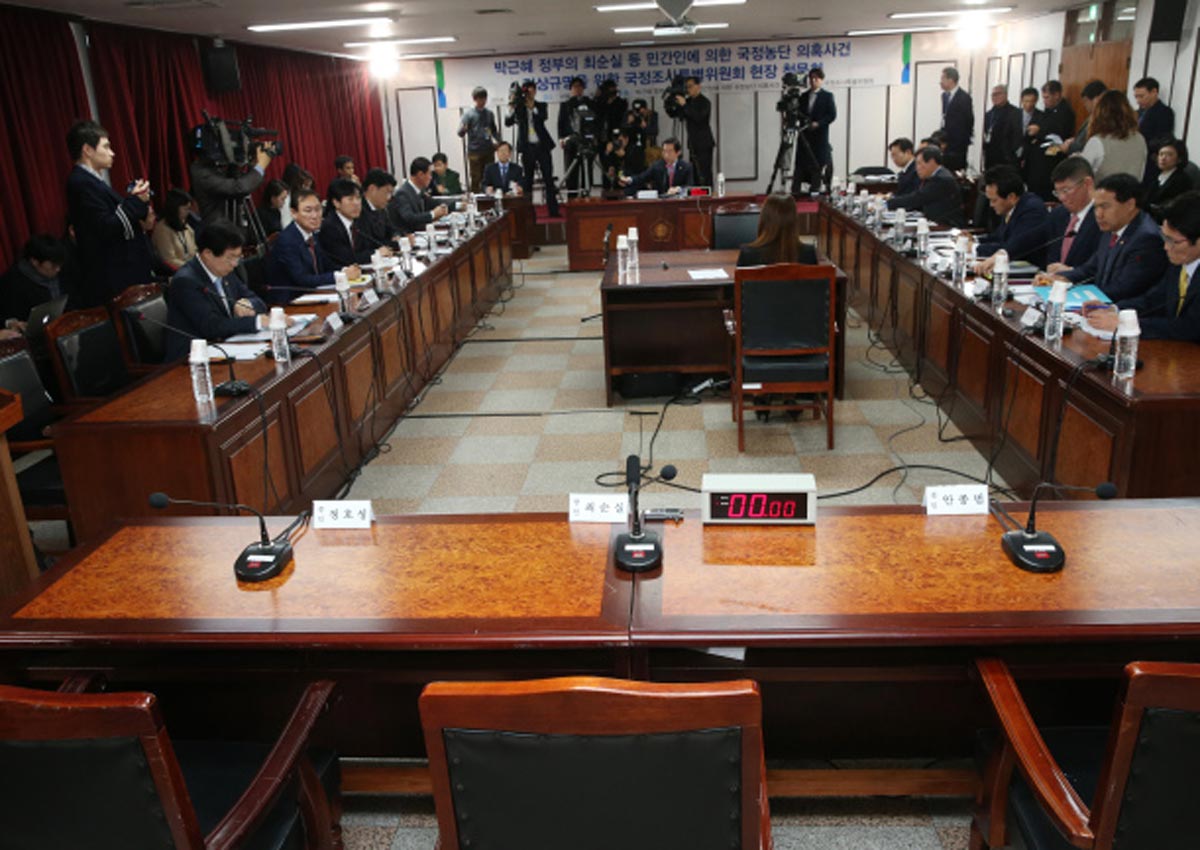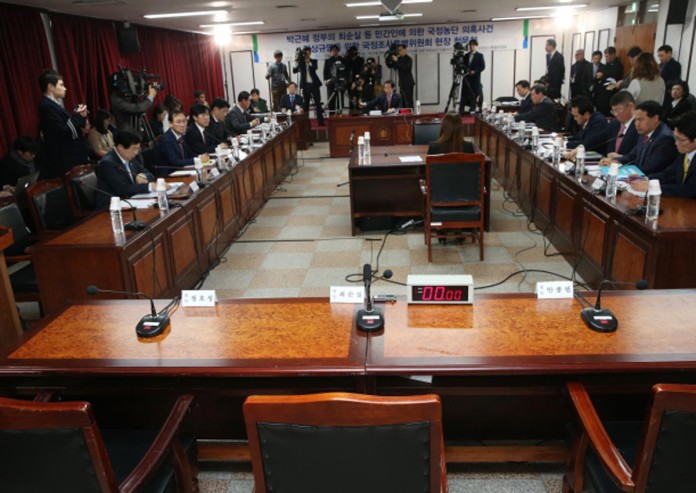President Pyeong-hui’s imprisoned friend Cui Shunyi told a group of lawmakers visiting her in detention on Monday that she did not commit any crime and denied all allegations.
Choi is currently detained in custody for allegedly using her relationship to manipulate the country’s affairs, a central figure in an out-and-out ugly scandal that led to the bombing of the president earlier this month. .
“Choi spent most of her time frustrated with her final situation,” said Chang Je-won of the ruling Saenari party, who is a member of the parliamentary inquiry committee and interviewed Choi in her detention facility.
The closed-door interview lasted more than two hours when legislators visited his room in the detention facility in southern Seoul.
Including Cui, the former presidential aides involved in the scandal – Anqing Chong and Zheng Hecheng – were also questioned by lawmakers.
As the last meeting of the scandal investigation, the parliamentary group tried to hold hearings at the facilities that are holding Cui and the presidential aides.
But none appeared, and they said that their appearance could affect pending trials and ongoing investigations.
Instead, legislators interviewed them in the cell.
During the meeting, Cui rejected all of the charges surrounding her, including accusing her of deducting money from the group and transferring it to the two foundations she runs.
She also stated that she had never committed any crime with the President Park and had not committed any wrongful acts.
The 60-year-old Cui also said she had never seen former President Kim Jitang and former President’s Secretary for Home Affairs, Wu Bingyu, suspected of failing to carry out their duties and allegedly allowed Cui to intervene in state affairs.
Meanwhile, Assistant President An told the legislators that Park had instructed him to allow these conglomerates to contribute to the Cui Foundation.
A was responsible for coordinating government policy until he resigned in October in a scandal.
In the interview, Zheng En, the president’s assistant, acknowledged that he had handed the classified documents to Cui, who edited some of them.
Including a list of presidential speeches and candidates for government posts.
Before the interview, the lawmakers condemned them for refusing to attend the hearings, saying they acted in the same way as defiance of the National Assembly and that they would take legal action against them.
“It’s like Cui and the people fighting, if we retreat, do not see Cui, it will be a victory for Cui and the failure of the people.
Ha Tae-keung of the Saenuri Party, a bipartisan group member. “We should stay here until Cui appears.
Legislators have high expectations for the rare parliamentary inquiry held in prisons.
A similar survey was conducted for the first time in 1997 when an enterprise group leader was tried in jail for causing the country’s worst financial crisis.
But when the weekend, when Choi and the presidential aides informed legislators that they refused to attend the hearings, this unexpected meeting was hit.
In addition to imprisonment and fines, there is no legal measure to compel them to appear in court – the relatively lenient punishment of witnesses who have been imprisoned.
Some members of the Panel angrily pointed out that the National Assembly should enact a law requiring witnesses to testify when they received a subpoena from the legislator.
“We can not force Cui to take a position because there is no legal basis to enforce it,” said the Democratic Party’s main opposition party, An Min-sheng.
“When we hold a plenary meeting today, we must pass a bill to force them to attend.
Kim Jong-Jin, the third-largest People’s Party representative, urged legislators to hold hearings for Cui and extend the working hours of her bipartisan commission.
The Commission is due to be completed by 15 January.
Since the commission was launched in November, members of the team have worked hard to find conclusive evidence linking Cui to the president.
The legislator was barred from investigating the Presidential Office and the main witness refused to participate in the parliamentary inquiry.
At the past five sessions, Cui had taken no position and no former President Anheuser-Generis.
They put forward the rationale for the risk from physical illness to the impact of ongoing investigations.
“My biggest disappointment is that most of the major witnesses in the investigation refused to take a position,” said Kim Sung-tai, the Saehari party’s managing director, who is chairman of the third legislative committee and chairman of the bipartisan committee.
But the legislators managed to summon some high-profile presidents






